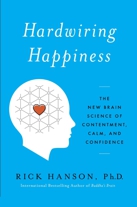Jim Clemmer's Leader Letter |
|
 |
|
|
|
February 2014, Issue 131
Fixing weaknesses is very deeply ingrained in our practices and beliefs. When coaching or having performance discussions with a team member most leaders will quickly gloss over strengths to address "improvement areas."
After reading How to Be Exceptional: Drive Leadership Success by Magnifying Your Strengths, Janet Pierce, Vice President of Education for Certified General Accountants of Ontario, sent me this e-mail:
"Thank you so much for sharing this book with me. I came down with the flu after Christmas so I curled up on the couch with my dog and read this book over two days. It resonated with me like few books do -- namely the current practice of focusing excessively on 'fixing' people's weaknesses.
I recall at a recent company I worked for, my 360 feedback had results in 5 main performance/skill domains ranging from 4.0 to 4.8 out of 5 (all in the top decile). My lowest score of 4.0 was listening skills. Now 4 is not a bad score, but this is where I spent most of my discussion time with my CEO. As part of my development activities for the upcoming year I had to take a training course in listening skills.
That time could have been better spent using my creative skills to build something new for the organization that would have had a much higher ROI. Invariably I did the latter anyway (because I don't listen well… :))."
Unfortunately, Janet's experience is far too common. It's one of the biggest reasons most 360 feedback assessments and performance management systems aren't effective. They're focused on weaknesses. Unless there's a serious deficiency that needs to be addressed, weakness-based improvement plans are demotivating and wasteful.
This issue features research on how we're hard-wired to overlook positives or strengths and zero in on negatives and weaknesses. Yet the science of happiness and leadership development shows much higher happiness and leadership effectiveness comes from rewiring our brains to accentuate the positive and build strengths.
Reversing years of conditioning isn't easy. But the pay-offs are huge. And we now have proven methodologies showing how to do it.
|
Complimentary Coaching Webinar and March Symposium

Despite all the research showing the enormous payoffs of extraordinary coaching skills, numerous studies show many leaders are falling short. Some of the reasons are:
- Confusing coaching with resolving issues, directing, mentoring, or training
- Awareness, personality/style training, or education rather than how-to coaching skill development
- Complex coaching models that are difficult to apply
- Poor role models
- Scars from difficult conversations that didn't go well
- Aversion to giving or getting performance feedback
I've written many blogs over the past year on Zenger Folkman's powerful evidence-based approach to coaching. You can scan these in our blog archive at Coaching and Developing.
Last month Jack Zenger presented a complimentary webinar: Coaching Matters: Six Ways to Jump Start Your Initiatives. Click here to access the archived webinar to learn about concrete actions to boost any organization's coaching skills development.
Registrations are now coming in for Zenger Folkman's symposium on "How to Create a Coaching Culture" in Orlando on March 12 – 13. This symposium is truly a unique opportunity: two days of workshops on coaching and feedback with Jack Zenger and Kathleen Stinnett. You'll likely recognize those names, as Jack and Kathleen are renowned authorities on coaching and authors of the book, The Extraordinary Coach. This seminal work is by far the best I've ever read on this vital topic.
These are the sessions you'd participate in:
- The Extraordinary Coach Workshop - full day with the originators of this powerful new system
- Elevating Feedback Workshop - 1/2 day
- Developing Yourself as Coach: Utilizing 360-degree Feedback Workshop - 1/2 day
- Dinner Speech: Creating a Coaching Culture
Immerse yourself in coaching development with the thought leaders in the field. The Coaching Symposium is taking place at the Wyndham Grand Orlando Resort Bonnet Creek in Orlando, FL. If you're knee deep in snow right now, the thought of a little "tropical vortex" in sunny Florida is very tempting as well!
Click here for more details and to register. I hope to see you there!
|
Reality Check: Our World is Dramatically Better

Make a hopeful comment to a pessimist and he or she will often counter with "bringing you back to reality." Most of what's called "reality" is reflections from the dark side. Politicians, journalists, activists, and religious, environmental and other fundamentalists wallow in fear and dire warnings of impending doom.
Here's what evidence-based reality tells about the state of our world:
- Life expectancy has risen 50% in that last 100 years.
- Infant mortality has dropped from one in five in 1960 to one in twenty today.
- Poverty has dropped more in the last 50 years than in the previous 500.
- The number of people in extreme poverty worldwide has dropped 50% since 1980.
- 1n 1981 more than 40% of the population lived on less than $1 a day. Today that's down to 14% and falling.
- Population growth is slowing dramatically with the number of babies born per woman now half of what it was 50 years ago.
- The number of children aged 0 – 14 has leveled off and is likely to remain static this century.
- World food supplies have gone from 2,250 calories per day in 1960 to 2,800 in 2002.
- Girls' education has risen dramatically and is now very nearly on par with boys.
- Childhood malaria rates have been cut in half since 2000.
- New HIV infection rates in sub-Saharan Africa are down 50%.
- The average number of wars is now half of the 1990s.
- Deaths from war are down 76% since 1990.
- Gun homicides in the U.S. have dropped 50% since 1993.
- Death rates from natural disasters have dropped 99% since the 1920s.
- U.S. dementia rates of people over 70 years of age fell from 12.2% in 1993 to 8.7% in 2002.
- Dementia rates in the U.K. in Britons over 65 have dropped by 25% in the past 20 years.
- U.S. carbon dioxide emissions have dropped 12% in the last 8 years.
- The U.S. budget deficit has seen the largest decline since the Second World War and is continuing to decline.
Why don't we hear more about these incredibly positive trends? M.D., entrepreneur, and philanthropist Peter Diamandis along with journalist Steven Kotler explain in their book, Abundance: The Future is Better Than You Think, "because we're hard-wired not to notice. As the first order of business for any organism is survival, our brain privileges information that appears to threaten us. As a result, we tend to focus too much on the bad news even as the good news struggles to get through. The media are so saturated with bad news -- if it bleeds, it leads -- because they're vying for the amygdala's attention."
Further Reading on This Reality Snapshot:
|
Can Every Strength Become a Weakness?

Eons ago Archimedes said, "Give me a lever long enough, and fulcrum strong enough, and single-handed I can move the world." Leveraging strengths have proven to be a powerful way for leaders to boost their effectiveness.
A few months ago my blog on "Letting go of Weaknesses is Really Hard" responded to commonly held beliefs voiced by two readers who could not let go of focusing on weaknesses. I then posted a comment in the LinkedIn Strengths-Based Leadership Development discussion group on How do you help leaders let go of focusing on their weaknesses?
This led to a lively discussion and thoughtful comments summarized in Join Our Strengths-Based Leadership Discussion Group. Since that blog post the discussion moved on to quotes from Morgan McCall's paper, "Every Strength a Weakness and other Caveats." Jack Zenger responded to this by drawing comparisons to a similar perspective outlined by Robert Kaiser and Robert Kaplan in, "Stop Overdoing Your Strengths."
It's a seductive argument and sounds logical at first. But the key difference is in the definition of a "strength." McCall, Kaiser, and Kaplan's definition is along the lines of a personality characteristic. And personality characteristics can clearly be overdone and become weaknesses or dangerous flaws. For example, assertiveness, confidence, or ambition can be taken too far and turn into a big problem.
Jack Zenger outlined the definition of a strength Zenger Folkman used in their original research and has been reinforced more deeply with over 10 years of research and application in helping over 50,000 leaders increase their effectiveness. Go to How do you help leaders let go of focusing on their weaknesses? to read Jack's definition and follow the discussion.
Leverage strengths and move your world.
|
White Paper Now Available: Can Strengths Be Taken Too Far?

In Can Every Strength Become a Weakness? I reported on the lively LinkedIn Strengths-Based Leadership Development discussion group on How do you help leaders let go of focusing on their weaknesses? Part of the discussion focused on the mistaken belief that strengths can be overdone and become weaknesses.
If you'd like to follow this discussion further you can now download a copy of our just published white paper, "Can Strengths be Taken Too Far: Addressing a Common Misperception ." Here's an excerpt addressing a common misunderstanding of strengths development:
"A prominent consulting company published a study on building a leadership pipeline. In this they quoted a senior HR executive who as a participant in a roundtable on developing leadership talent had said, 'whenever you find someone with two or three strengths, most likely you will find that person has a serious weakness.' This would seemingly support the idea that strengths carried too far become weaknesses, or that it is common to find these mixed together. We examined that question, and our data suggests just the opposite.
Only one person in a hundred people, with three or more strengths, will have a fatal flaw. From a group of 100 people with two or more strengths, less than 3 would have a fatal flaw. From a group of 100 people with just one strength, only 7 would have a fatal flaw. Looked at in the reverse way, 93% of all people who possess one or more fatal flaws, will have no leadership strengths. Strengths and weaknesses just do not frequently co-exist in the same person. It is clearly the exception, not the rule."
There's no evidence that strengths can be taken too far and become a weakness. Clearly the pathway to peak leadership performance is building strengths.
Click here to download the white paper and read more.
|
Free Webinar: Building Leadership Skills and a Coaching Culture

Join me for a free learning-rich and fast-paced 60 minute webinar on February 27th at 1:00PM ET (Toronto/New York). I will outline how to build a culture of exceptional leadership and coaching in your organization to address:
- succession planning
- strengthening leadership bench strength
- cultivating teamwork
- recruiting top talent
- increasing retention and engagement
- improving customer service, safety and wellness
- higher sales and higher profits
Don't just build individual leaders -- build a culture of exceptional leadership and coaching in your organization. Register here – seats are limited.
|
Here's the Feedback on Getting and Giving Feedback

In "Assess Your Effectiveness at Getting and Giving Feedback" I summarized Zenger Folkman's recent research on the power of feedback. Leaders ranked in the top and bottom 10% on asking for and giving feedback were also rated the highest or lowest in leadership effectiveness and engagement levels. The post had a link to Zenger Folkman's survey on feedback practices and perceptions.
Nearly 1,000 participants have now completed that survey. In a follow up Harvard Business Review blog, Your Employees Want the Negative Feedback You Hate to Give, Jack Zenger and Joe Folkman report on the survey results. Here are a few key findings:
- The same numbers of people prefer to give positive feedback as those who don't.
- A significant number of people avoid giving negative feedback.
- People prefer receiving positive feedback to the same degree that they dislike giving negative feedback.
- Those people who find it difficult and stressful to deliver negative feedback were also significantly less willing to receive it themselves.
- There was a strong correlation between a person's confidence level and his or her preference for receiving negative feedback.
- The response to the survey's final question was more surprising. When asked if they would prefer praise/recognition or corrective feedback a significantly larger number (57%) preferred corrective feedback; only 43% preferred praise/recognition.
92% of respondents reported that how corrective or redirecting feedback is delivered determined whether it was seen as effective at improving performance. That reinforces, once again, that a leader's ability to have courageous conversations and give difficult feedback is a key coaching skill.
The answer to that last question shows the deep rooted belief that the main pathway to improved performance is focusing on weaknesses, gaps, and deficiencies. If we have a major weakness that overshadows our strengths we clearly need to address that. And a leader who can skillfully help us see and address that glaring gap is invaluable.
But the majority of people completing this survey won't have any fatal flaws, just weaker performance areas. Over 10 years of Zenger Folkman's research clearly shows they'd be 2 – 3 times further ahead with feedback and coaching that helps them identify and leverage strengths.
|
Review of Hardwiring Happiness: The New Brain Science of Contentment, Calm, and Confidence

The emerging science of Positive Psychology continues its exponential growth using evidence-based approaches. New research and practical applications map pathways for moving our mental health and well-being from good to great.
Rick Hanson is a neuropsychologist, founder of the Wellspring Institute for Neuroscience and Contemplative Wisdom, and an Affiliate of the Greater Good Science Center at UC Berkeley. The title of his latest book, Hardwiring Happiness, describes his main premise drawn from the latest research in brain science and psychology.
"Neurons that fire together wire together. Mental states become neural traits. Day after day, your mind is building your brain … the structure-building processes of the nervous system are turbocharged by conscious experience, and especially by what's in the foreground of your awareness. Your attention is like a combination spotlight and vacuum cleaner: It highlights what it lands on and then sucks it into your brain -- for better or worse."
We're programmed to focus on any and all possible dangers and threats. Those basic survival instincts kept our ancestors from being eaten by saber-toothed tigers. But our prehistoric brains haven't evolved nearly as quickly as civilization has eliminated those primordial perils. Rick explains, "the negativity bias is tilted toward immediate survival, but against quality of life, peaceful and fulfilling relationships, and lasting mental and physical health. This is the default setting of the Stone Age brain … makes it like Velcro for bad experiences but Teflon for good ones … if we don't take charge of it, it will continue to take charge of us."
The book is built around his HEAL process to rewire our brains for internalizing positive experiences:
- Have a Positive Experience -- notice or build positive sensations, connections to others, experiences, gratitude, or sense of accomplishment.
- Enrich it -- hold on, deepen, and intensify the positive experience for five, ten, or more seconds. We could find something fresh novel, personally relevant, or nourishing in that moment.
- Absorb it -- visualize or feel it sinking deep into your body and as you sink into the experience.
- Link positive and negative material (optional) -- hold the positive experience in the foreground as you recall and displace a previous negative experience in that same space. The danger (and what makes this step optional) is the negative experience may crowd back in and take over our thoughts.
Hardwiring Happiness is well written, easy to read, and full of application exercises that can be a bit overwhelming. The key is focusing on the most relevant ones and repeated application to rewire and refire our neural network.
|
Thoughts That Make You Go Hmmm on …. Hardwiring Happiness by Rick Hanson

" … what you pay attention to -- what you rest your mind on -- is the primary shaper of your brain."
" … the default setting of the brain is to overestimate threats, underestimate opportunities, and underestimate resources both for coping with threats and for fulfilling opportunities. Then we update these beliefs with information that confirms them, while ignoring or rejecting information that doesn't."
"The brain is good at learning from bad experiences, but bad at learning from good ones … if the mind is like a garden, the 'soil' of your brain is more fertile for weeds than for flowers. So it's really important to plant the seeds of inner strengths by repeatedly taking in the good."
"If your boss gives you an excellent performance review that contains just one piece of critical feedback in a bucket of praise, you'll likely focus on that one negative comment. Negative stimuli are perceived more rapidly and easily than positive stimuli."
"Lasting intimate relationships usually need at least five positive interactions to balance every negative one. People really begin to thrive when positive moments outnumber negative ones by at least a three-to-one ratio, and ideally higher. Negative contaminates positive more than positive purifies negative."
"You're not looking at the world through rose-tinted glasses, but rather correcting your brain's tendency to look at it through smog-tinted ones. And by taking in the good, you become more able to deal with the bad."
"As you take in a feeling of strength, see if you can let yourself truly become a little stronger. The mind (and brain) takes its shape from what it rests upon, and you're letting it mold itself around the positive experience that you are taking in."
|
Tweet Reading: Recommended Online Resources
This section summarizes last month's LinkedIn Updates and Twitter Tweets about online articles or blog posts that I've flagged as worth reading. These are usually posted on weekends when I am doing much of my reading for research, learning, or leisure.
My original tweet commenting on the article precedes each title and descriptor from the original source:
A very funny illustration of how we all like to be treated fairly and equally.
"Two Monkeys Were Paid Unequally: Excerpt from Frans de Waal's TED..."
www.youtube.com
"What happens when you pay two monkeys unequally? Watch what happens. An excerpt from the TED Talk: 'Frans de Waal: Moral behavior in animals.'"
Ed Lawler reminds us how critical getting and developing the right people in the right roles is to organizational results.
"What Should HR Leaders Focus On In 2014?" - Edward E. Lawler III
www.forbes.com
"The main focus for most organizations in 2014 should be on talent management and talent development, particularly the managerial and technical roles that are the difference makers."
Five excellent points showing a powerful approach to talent management that's had a huge impact on their incredible success.
"How Netflix Reinvented HR" - Patty McCord, Harvard Business Review
www.hbr.org
"A Netflix PowerPoint deck about the organization's talent management strategies went viral with more than 5 million views. Their Chief Talent Officer explains how they attract, retain, and manage stellar employees."
Daniel Goleman offers six steps to deal with a problem that's overwhelming many managers and leaders in today's crazy-busy world.
Organizational Attention Deficit Disorder - linkedin.com, Daniel Goleman
www.linkedin.com
"Ideally people working as a team are going to be attuned to each other. The star performing teams have the highest harmony, and have certain norms for maintaining that harmony such as…"
|
Read The Leader Letter in Twice Weekly Installments
The items in each month's issue of The Leader Letter are first published in my twice weekly blog during the previous month.
If you read each blog post (or issue of The Leader Letter) as it's published over twelve months you'll have read the equivalent of one of my books. And you'll pick up a few practical leadership tips that help you use time more strategically and tame your E-Beast!
|
Feedback and Follow-Up
I am always delighted to hear from readers of The Leader Letter with feedback, reflections, suggestions, or differing points of view. Nobody is ever identified in The Leader Letter without their permission. I am also happy to explore customized, in-house adaptations of any of my material for your team or organization. Drop me an e-mail at Jim.Clemmer@Clemmer.net or connect with me on LinkedIn, Twitter, FaceBook, or my blog!
May the Force (of strengths) be with you!
Jim
     | |
|
 |
 |
|
Please post or forward this newsletter to colleagues, Clients, or associates you think might be interested - or on a 'need-to-grow' basis. If you received this newsletter from someone else, and would like to subscribe, click on the link below: www.clemmergroup.com/newsletter
The CLEMMER Group
10 Pioneer Drive, Suite 105, Kitchener ON N2P 2A4
Phone: (519) 748-1044 ~ Fax: (519) 748-5813
E-mail: service@clemmer.net
http://www.clemmergroup.com |
| |
 | |
|
Copyright 2014 © Jim Clemmer and The CLEMMER Group | |












